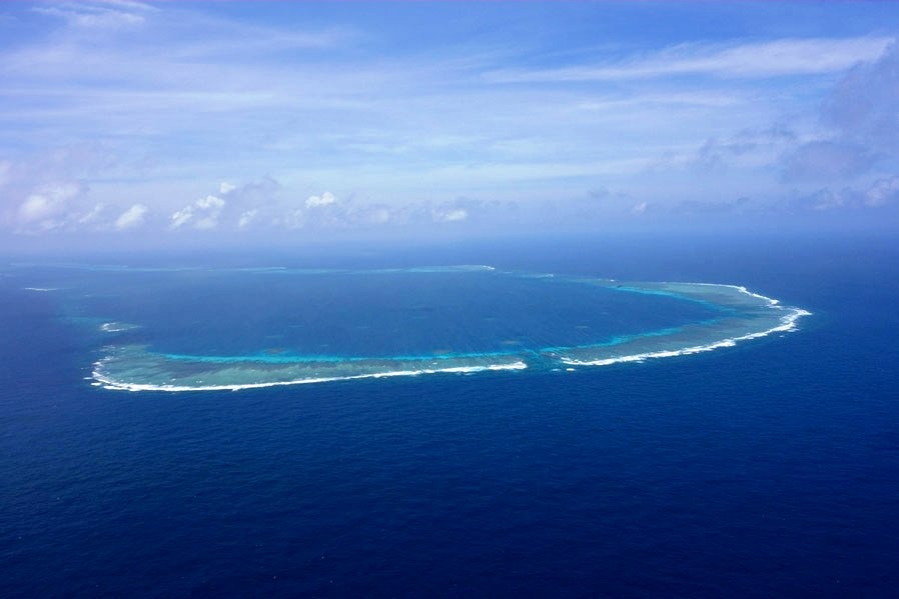
Ren'ai Jiao. [File photo/China Daily]
The latest incident in the waters adjacent to China's Ren'ai Reef, in which there was slight collision when an illegally intruding Philippine supply ship dangerously approached a China Coast Guard vessel, is the latest in a series of risky encounters between Chinese law enforcement vessels and Philippine vessels near Ren'ai Reef in recent months due to the Philippines' brazen land-grabbing antics.
Such incidents have occurred with increasing frequency as the Philippines has stepped up its efforts to ship construction materials to an aging warship it deliberately ran aground on the reef so it can make it a permanent facility, thus driving in its stake to claim the reef as its territory.
In another development, Manila is trying to give a veneer of validity to its attempt to illegally seize Chinese maritime territory and encroach upon China's maritime interests by submitting information to the United Nations Commission on the Limits of the Continental Shelf on June 15, in a bid to gain recognition for an extended continental shelf.
According to an Associated Press report, the undersea region Manila is seeking to formally establish its sovereignty over under the UN Convention on the Law of the Sea covers China's Nansha Islands and other disputed islands, islets and reefs.
Manila played a similar trick in 2013 when it unilaterally filed a case against China's territorial claims in the South China Sea, which only served to complicate the situation in the region by producing a politically motivated decision that is legally null and void.
With its latest move, Manila is once again seeking to mislead the international community and further escalate tensions with China over the South China Sea issue.
By portraying it as being not a claim for territorial ownership but a submission to establish entitlement to a continental shelf beyond 200 nautical miles, Manila is being disingenuous.
With new procedures coming into effect on June 15, the China Coast Guard will be equipped with more forceful legal measures to enforce maritime law and advance China's maritime legal governance in its territorial waters, including detaining foreign ships that have illegally entered China's waters.
It is beyond doubt that Manila would not be displaying such showy bravura without the hustling of the United States, whose "Indo-Pacific" strategy would be severely compromised if Manila and Beijing were to restore nonconfrontational relations.
But Manila should know that it is also beyond doubt that it is playing with fire and risks being burned. Beijing has warned there is a limit to its restraint. Certainly, whatever ploys Manila comes up with to challenge China's territorial integrity and sovereignty, Beijing will resolutely respond to them.













